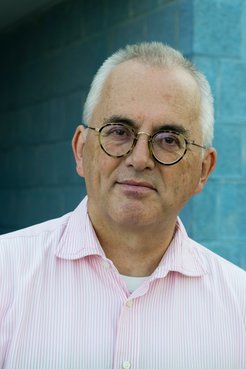The search for quantum gravity - scientists from around the globe honour Hermann Nicolai
Top-class conference to mark the 60th birthday of the AEI Director
With a three-day international conference from 6 to 8 September 2012, the Max Planck Institute for Gravitational Physics (Albert Einstein Institute/AEI) in Potsdam-Golm will mark the 60th birthday of Prof. Dr. Hermann Nicolai, Director of the “Quantum Gravity and Unified Theories” Department. Nicolai is one of the most renowned scientists in the world working on a comprehensive, unified theory - often referred to as a “theory of everything”. The title of the event, which will be attended by leading scientists from the world over: “Symmetries, Unification and the Search for Quantum Gravity”.

Hermann Nicolai has been focussing on gravitational physics and the physics of elementary particles for almost forty years now. At the heart of his work is the central question as to how the reconciliation of Einstein’s theory of general relativity as an explanation of cosmic processes with the quantum theory as a description of matter below atomic level can be brought about. Characteristic of Hermann Nicolai’s research style is the fact that he allows for a range of diverse research fields in his area. Therefore, in his Department at the AEI, differing and even somewhat competing approaches are pursued. For this reason, outstanding scientists who have been the recipients of prestigious and highly endowed prizes, often decide to conduct research at the AEI under Nicolai’s supervision. Currently, these include Dr. Daniele Oriti, who received the Sofja Kovalevskaja Prize worth 1.41 million euros, and Dr. Jean-Luc Lehners who, with his ERC (European Research Council) Starting Grant of 1.15 million euros, recently established a Research Group at the AEI. Numerous colleagues from Nicolai’s Research Group have, in the meantime, been appointed to professorships both in Germany and abroad. They are, as before, in close contact with the AEI.
Albert Einstein himself had already recognized that his general theory of relativity was not able to describe all physical phenomena and for many years searched for a comprehensive theory. Today, the most promising candidate for the solution to this question is the super string theory and related approaches. As Hermann Nicolai is careful to ensure that the research is not too constrained, various research approaches are undertaken parallel to each other. This includes the string theory in its numerous forms (i.e. cosmology, physics of black holes, elementary particle physics, mathematical applications, etc.) as well as super symmetry, canonical quantification, quantum geometry, etc.
For his long-standing, comprehensive scientific work on symmetries of Einstein’s gravitational theory, Hermann Nicolai was awarded the Einstein Medal of the Albert Einstein Society in 2010. Since 1979 the honour has been bestowed on outstanding physicists including Stephen Hawking, Rudolf Ludwig Mößbauer and Murray Gell-Mann. Hermann Nicolai’s efforts were already recognized in 1991 with the Otto Klung Science Award for physics.
Hermann Nicolai, born 1952 in Friedberg (Hessen) studied physics at the Universität Karlsruhe where he also received his doctorate, after which he held a position as assistant at the Universität Heidelberg. From 1979 to 1986 he conducted research at CERN (European Organization for Nuclear Research) in Geneva. After professorships in Karlsruhe and Hamburg, he was appointed Director of the “Quantum Gravity and Unified Theories” Department at the AEI. From 1993 to 1996 he was a member of the scientific advisory board of the Deutsches Elektronen Synchrotron (DESY) in Hamburg and, early 2012, was appointed to the external advisory board of the theory department at CERN in Geneva. In addition, Nicolai has been a member of many years of the advisory board of the Solvay-Foundation in Brussels, Belgium, as well as the executive committee of IHES (Institut des Hautes Etudes Scientifiques) in Bures- sur-Yvette, France.












